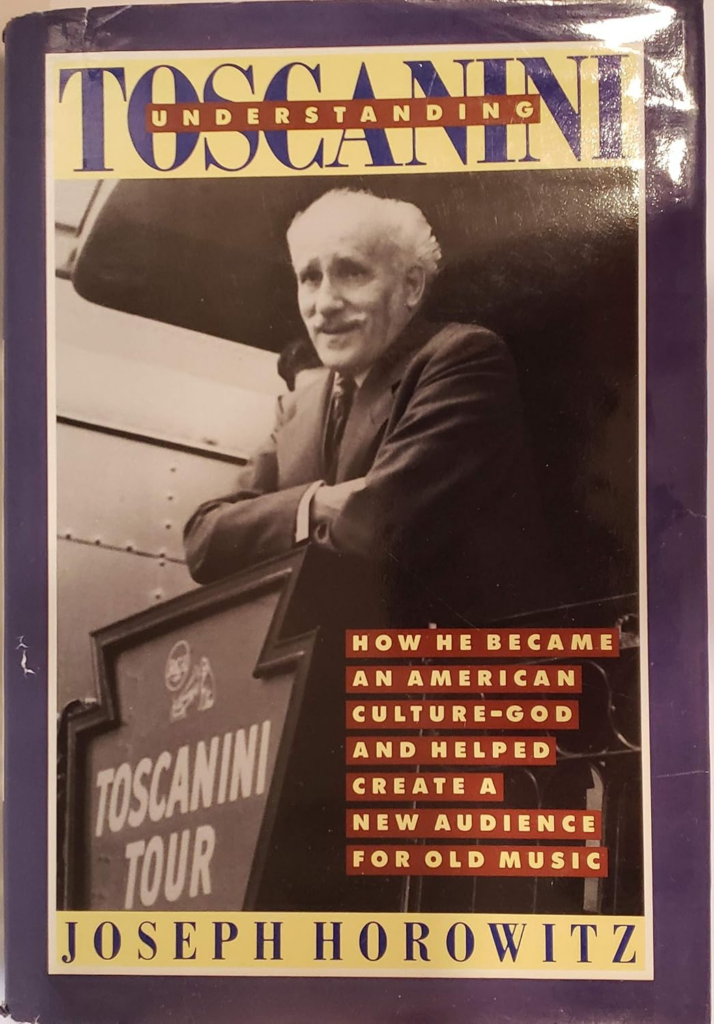
If you’re in the mood for a rollicking conversation about the downfall of classical music in the US, check out this podcast conversation I recently had with the terrific conductor Kenneth Woods (who’s based in the UK rather than the US, in which he deserves a music directorship of consequence).
My favorite sentence:
“Those chickens that are now coming home to roost are the chickens I’ve been writing about since the 1980s [in Understanding Toscanini], for which I was initially vilified. But now that I’ve turned into a prophet, I’m simply ignored.”
These, in sequence, are the topics at hand:
1.The grim situation of the arts in the UK right now: no money.
2.My visit to South Africa, and how classical music there is evolving with notable Black leadership (thanks in part to Nelson Mandela).
3.My ruthless analysis of the interwar popularization or “democratization” of classical music in the US, which anointed Arturo Toscanini “the world’s greatest musician” even though he wasn’t a composer. This was a commercial operation headed by David Sarnoff (RCA/NBC) and Arthur Judson (the managerial powerbroker who declared that “the audience sets taste”). Dead European masters — easiest to merchandize — were prioritized. Amateur music-making was discouraged in favor of broadcasts and recordings by the experts.
4.A barrage of pointed questions and observations from Ken attempting to figure out Toscanini’s primacy (“why he won”). Toscanini’s appeal to mass taste.
5.Ken proposes a thought experiment – subtract Toscanini from the story of classical music and what do you get? You get Serge Koussevitzky and Leopold Stokowski. And where might that have led? I marvel in passing: “Stokowski didn’t care about integrity, it wasn’t part of his vocabulary.”
6.Dmitri Mitropoulos, and why his 1940 Minneapolis Symphony premiere recording of Mahler’s First seems to me the most remarkable Mahler recording ever made – and unthinkable today (with choice audio examples)
7.Ken asks: What if Leonard Bernstein had been appointed Koussevitzky’s successor in Boston in 1950, rather than winding up at the New York Philharmonic (which had no pertinent tradition of espousing American music)? Ken answers himself: “It would have changed the repertoire of all American orchestras.”
8.My own favorite thought experiments:
— What if Gustav Mahler had premiered Ives’s Second Symphony with the New York Philharmonic?
— What if George Gershwin had lived as long as Aaron Copland?
Either would have fundamentally changed the trajectory of American classical music.
9.What if Anton Seidl – who was bigger than Toscanini or Bernstein in New York City – had not died in 1898 at the age of 47? There would have been an annual Wagner festival in Brooklyn as pedigreed at Bayreuth – limiting the damage inflicted on Wagner by Hitler and Winifred Wagner.
10. “I can’t imagine life without cultural memory, although we’re beginning to get a glimpse.” Today’s “makeshift music,” sans lineage or tradition – “eagerly acquisitive and open-eared.”
Today’s famous instrumentalists sans lineage or tradition –vs Sergei Babayan and Daniil Trifonov, who perform Rachmaninoff “in full awareness of a tradition of Russian composition and performance.”
11.The Metropolitan Opera’s “worst ever” Carmen
12.Leonard Bernstein’s capacious vision, revisited today.

